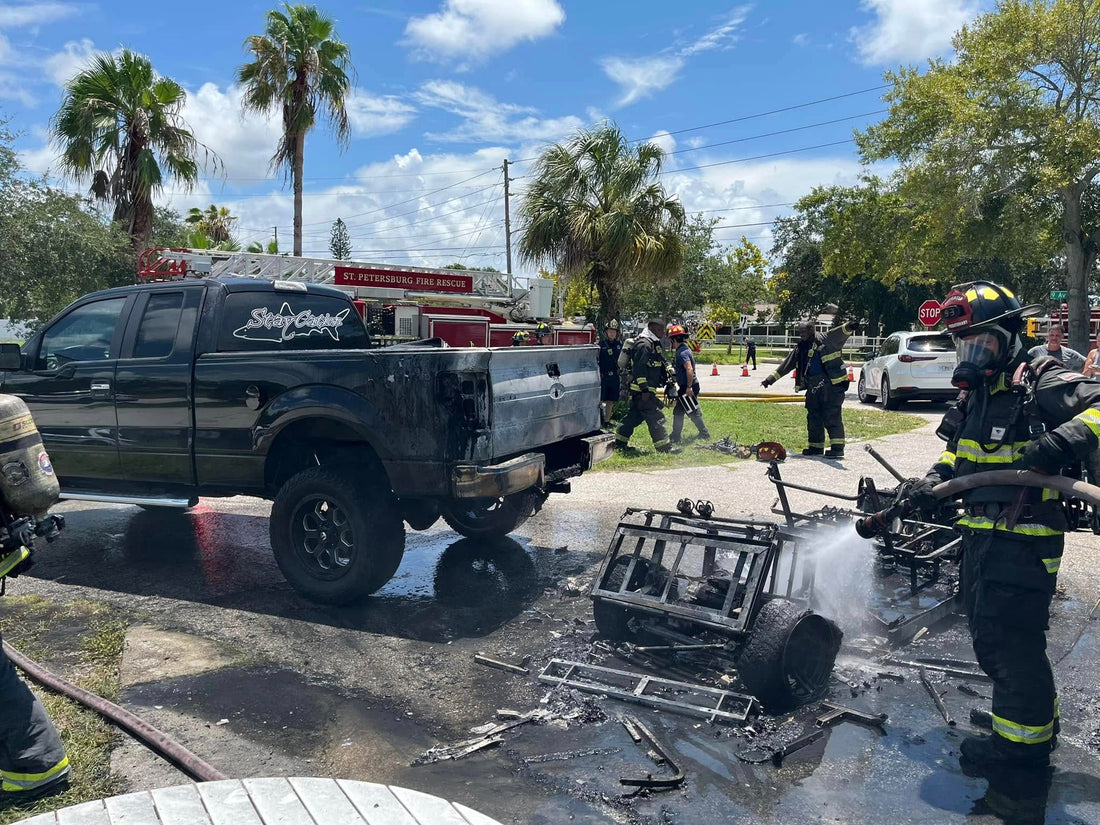
Battery Powered Chaos? St. Pete Firefighters Sound the Alarm on a Hidden Fire Risk
Share
A Quiet Crisis Behind Everyday Charging
It’s not your imagination. Those buzzing, blinking gadgets around your home are becoming real fire hazards. St. Petersburg firefighters say nearly 30% of the fires they’ve investigated this year are connected to lithium-ion batteries, the same type used in phones, scooters, golf carts, and even AirTags.
That number has local crews on edge, and they’re not alone. Across the country, more than 2,500 lithium-related fire incidents were reported in 2024. Fire departments are using Fire Prevention Week to sound a clear warning:
If it charges, it can catch fire faster than you think.
“It’s a Real Issue, and We Are Seeing an Increase.”
Division Chief Ian Womack of St. Pete Fire Rescue says the trend is impossible to ignore. From home calls to apartment fires, his crews are finding the same culprit again and again: overheated or improperly charged batteries.
“Of the fires we have investigated this year, 28% have been battery-related. It’s a real issue, and we are seeing an increase,” said Womack.
And sometimes, it’s not even the battery that fails. It’s the cheap replacement charger people buy online.
“When chargers go bad, folks hop on Amazon and grab the cheapest one,” he explained. “But if it’s not calibrated for that specific battery, it can overcharge and ignite.”
When Charging Goes Wrong
Even St. Pete City Councilman Copley Gerdes learned that lesson firsthand. Thinking his watch charger would work just fine for his AirTag, he plugged it in and stepped away.
“I had never had an AirTag before. I put it on my watch charger, got into the shower, and it blew up my charger,” Gerdes recalled.
It was a small mistake that could have ended much worse, and one firefighters say happens far too often.
Charging Smarter, Living Safer
Fire officials say preventing a lithium-ion fire doesn’t take much—just smarter charging habits and a little extra attention.
Use the original or manufacturer-approved charger. Never leave devices plugged in while unattended, especially overnight. Keep e-bikes and scooters outside your living space when charging, and look for a UL safety certification before you buy new devices.
And when the battery dies, don’t just throw it away. Improperly discarded batteries have caused fires in garbage trucks and landfills across Florida. Instead, recycle safely at a certified site such as Call2Recycle.org.
The Bigger Question
As lithium-ion batteries power everything from phones to electric cars, cities like St. Petersburg are now facing a serious question. Are we prepared for the fire risk that comes with our tech-driven lifestyle?
Should city leaders create stronger rules for how and where these batteries are charged? Or does the responsibility fall on consumers to keep their devices safe at home?

